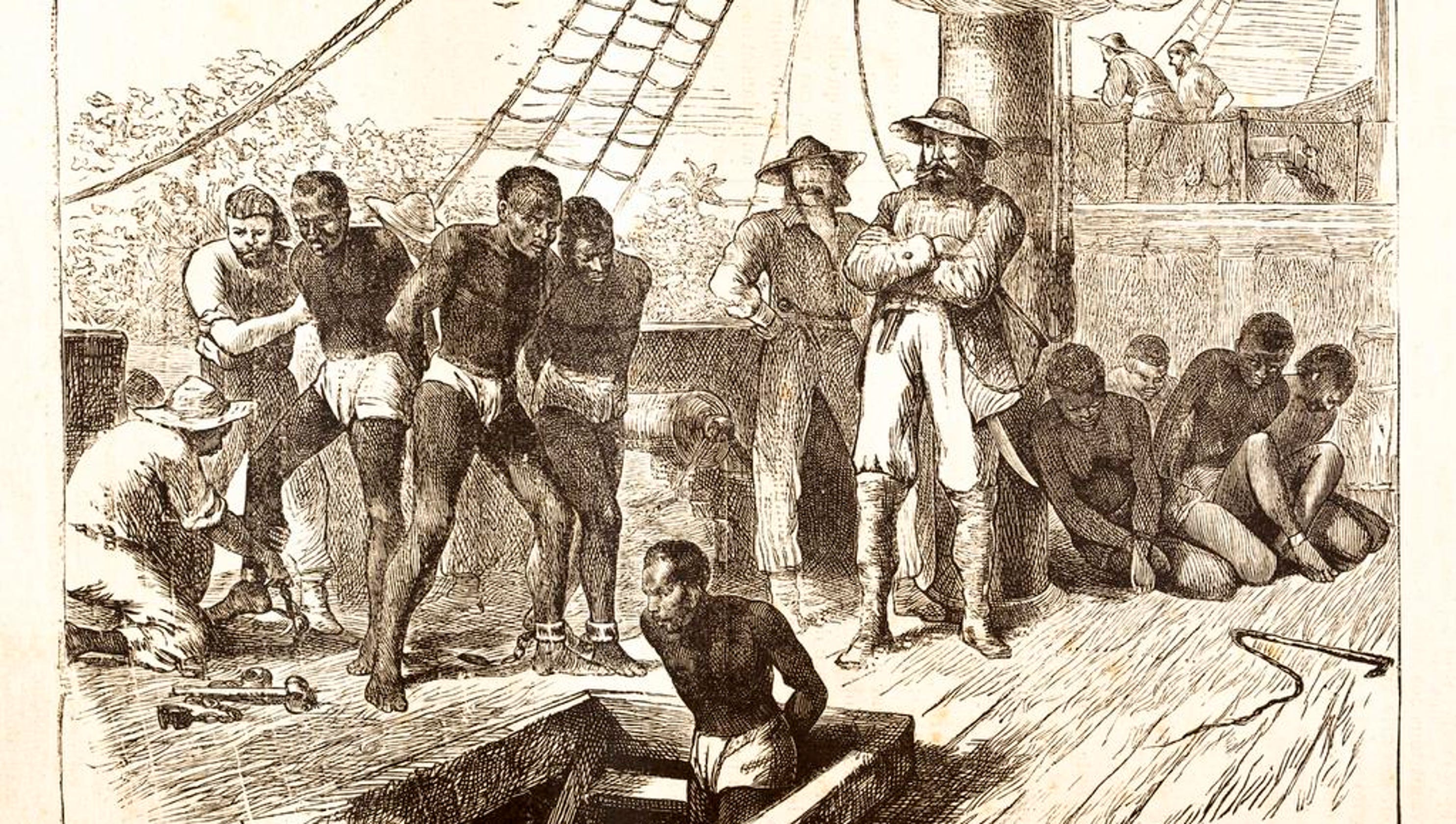
Transatlantic Slave Trade comes to the British North American colonies (August 25, 1619)
Four hundred years later, it’s a big milestone in Black history, and indeed, world history. Who could predict how the world was about to change on that fateful day in 1619 when an English privateer (a fancy word for Crown-sanctioned pirate or mercenary) docked the White Lion ship in the Virginia colony and traded “20 and odd” Africans – Angolans to be specific – for food? I’m sure they didn’t think that the descendants of those and half a million other African would have made such a tremendous impact on what America has become, culturally, politically, and spiritually. Likewise, those who were traded probably had no idea how the institution of slavery would transform from the indentured service for a set period of time to lifelong bondage, inherited bondage, and the treatment of their offspring as subhuman property.
The Transatlantic Slave Trade had been booming in South America for nearly a century already, where the vast majority of Africans forced into the “New World” were shipped. The Portuguese dominated the trade at that time. In fact, the Angolans aboard the White Lion had been “stolen” from a Portuguese ship in the Gulf of Mexico. Within a few decades, the British would officially enter the trade with John Hawkins and his slave ship, Jesus of Lübeck, and became the second largest European exporter of enslaved Africans until it abolished the slave trade and emancipated its former slaves in 1834. Of course, America had declared its independence from Britain and felt free to continue using slave labor until the end of the American Civil War,









